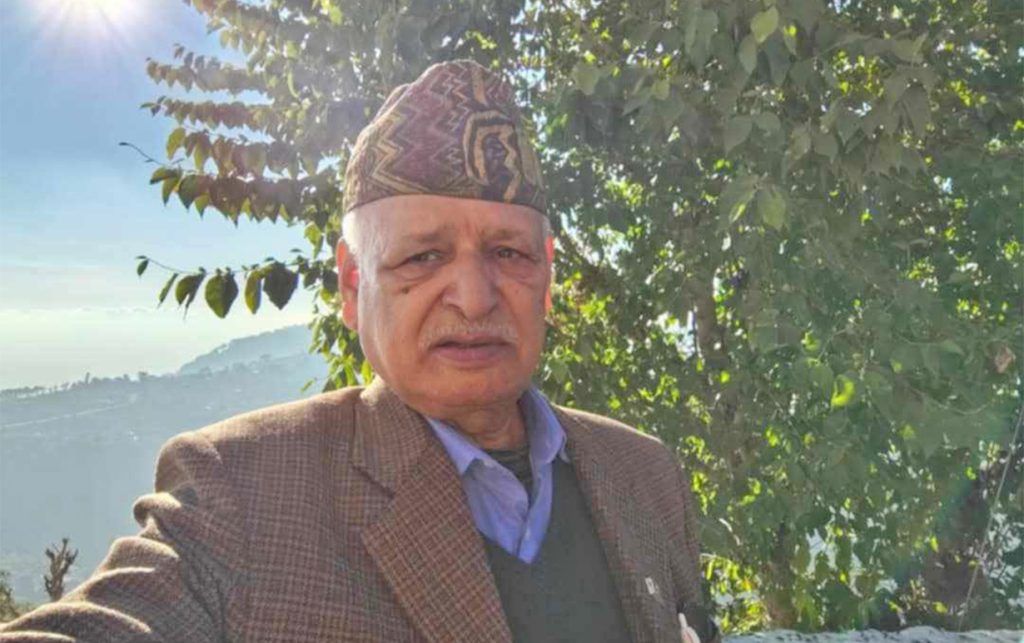
Reading books can be quite addictive. Once you finish one, you find yourself immediately searching for the next. It is an unquenchable appetite. Every year, a plethora of new books hit the shelves, and this year is no exception, especially in the realm of Nepali literature. From fiction to nonfiction, plays and more, a diverse array of genres of new Nepali books have recently graced the market.
So if you are looking forward to reading the recently released Nepali books of various genres, we have a treat for you.
Here are seven new Nepali books that you should read.
Aaithan

Bibek Ojha’s Aainthan is a winner of Madan Puraskar 2079. The book vividly depicts the harrowing effects of a civil war. The term ‘Aainthan’ serves as a poignant synonym for agony, encapsulating the profound suffering endured in our world, often mirroring the painful turmoil experienced amidst the chaos of warfare. It stands as one of the finest new Nepali books available.
Bibah Aagadi Bibaha Pachadi

Marriage is usually considered one of the most significant events of an individual’s life. Hence, a significant emphasis is placed on marriage. Nevertheless, there are numerous aspects of marriage that are typically left undiscussed. However, in Raju Adhikari’s recently published book Bibah Aagadi Bibaha Pachadi, various facets of marriage have been thoroughly examined. For example, the book delves into subjects such as what constitutes a perfect or imperfect marriage, the repercussions of both good and bad unions, and more.
Euta Sapanako Awasan

Euta Sapanako Awasan is a Nepali translation of Death of a Salesman written by Arthur Miller. The Nepali translation of this globally popular play is done by poet Viplob Pratik.
Euta Sapanako Awasan revolves around the vicissitudes of Biren Pratap Karki’s life and his middle-class family.
Usually, a middle-class family has to go through many ups and downs concerning jobs, finances and education. While many families can be successful in settling them, many families cannot, leading themselves to a catastrophe.
As the title suggests, Euta Sapanako Awasan [literally, the death of a dream] has a catastrophic end.
Mahabir Pun: Samjhana, Sapana ra Abiral Yatra

Scientist Mahabir Pun is renowned for his groundbreaking work in implementing wireless technologies to uplift remote areas of the Himalayas, a project widely recognized as the Nepal Wireless Networking Project. In addition to this, Pun has contributed significantly to the advancement of the science and innovation sector in the country.
Similar to every successful person, Pun has his own story of struggle which has not come to the limelight. So if you are interested in knowing more things about Pun, you can read his autobiography Mahabir Pun: Samjhana, Sapana ra Abiral Yatra.
Paniphoto

The Nepali movie sector faces a shortage of locally sourced literature. There are still very few individuals willing to enrich the Nepali movie industry by authoring books. In this context, director, actor, and author Khagendra Lamichhane has introduced a book titled Paniphoto, delving into the diverse facets of filmmaking. The book also encompasses Lamichhane’s firsthand experiences from working on various films. It stands as a valuable read for directors, actors, film students, and other like-minded enthusiasts.
Sala Pahad Mein Kya Hai

Sala Pahad Mein Kya Hai is a poetry collection composed by Min Bahadur Bista. The poetry collection that depicts the different sides of modern Nepali society has a total of 64 poems. The poem represents the last five decades of Nepali society.
Poems such as Chunab Pachi Ko Gaun, Jar Saab Ko Kukur, Nagarikta, Euta Alapatra Desh and Laas Haru Ko Sagarmatha are included in Sala Pahad Mein Kya Hai.
Usle Diyeko Umer

Nine months after releasing the latest book Eklo, Buddhi Sagar has again given a surprise to the readers by releasing another new book Usle Diyeko Umer on October 8. The book is a memoir of Sagar’s life.
As individuals journey through life, they inevitably encounter a series of ups and downs. These fluctuations are intricately woven into Usle Diyeko Umer. This book has the potential to resonate with a wide audience, as many have also experienced their fair share of both triumphs and tribulations.


















